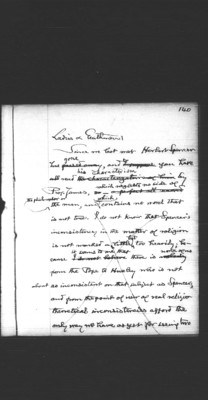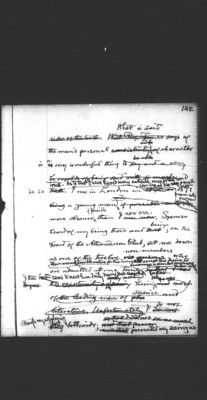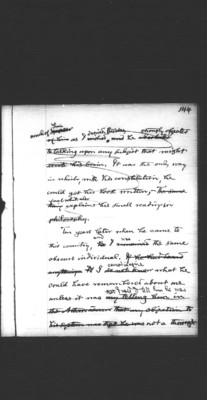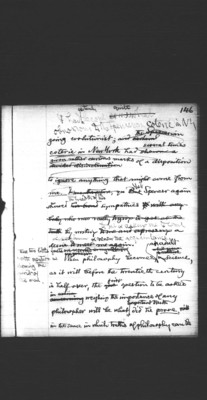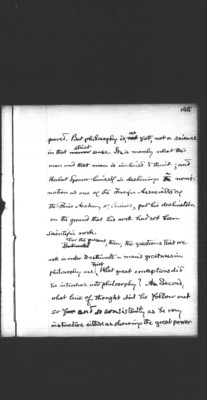Pages
101
140
Ladies and Gentlemen,
Since we last met Herbert Spencer has passed awaygone, and you have read his characterism by Prof. James, which neglects no side of the philosopher or the man, and which contains no word that is not true. I do not know that Spencer's inconsistency in the matter of religion is not marked a little bit too heavily; because it seems to me that there is none of us from the Pope to Huxley who is not about as inconsistent on that subject as Spencer; and from the point of viewe of real religion theoretical inconsistencies affor the only way we have as yet for seeing two
102
142
What is said of the man's personal character is a very wonderful thing to be so true. As to that I have heard many authentic anecdotes and can report two small [??} from my own experience.
I was in London in 1871 a young man more obscure if possible than I now am. Spencer heard of my being there and, being on the board of Athenaeum Club, set me down as one of the twelve non-members who are admitted at one time. There was no possible motive for his doing this except his desire to encourage a sincere inquirer. I thus came to meet him daily during that
105
148
proved. But phiosoply is, as yet, not a science in that scrict sense. It is merely what this man and that man is inclinced to think; and Herbert Spencer himself in declining a nomination as one of the Foreign Associates of the Paris Academy of Science, put his declination on the ground that his work had not been scientific work.
For the present, then, the questions that we ask in order to estimate a man's greatness in philosophy are first What great conceptions did he introduce into philosophy? Second, what line of thought did he follow out so far and so consistently as be very instructive either as showing the great power
